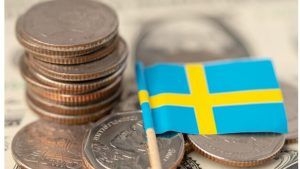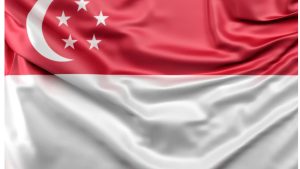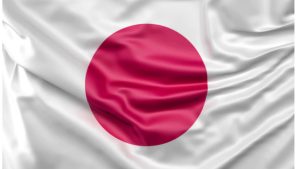Countries With The Lowest Inflation In The World: Inflation is defined as a long-term rise in the overall price level of goods and services in an economy, resulting in a decline in the buying power of money. It is critical to recognize that inflation can be managed since the reasons can be recognized. Excessive demand for products and services compared to supply, for example, may contribute to inflation. Inflation may be influenced by changes in the money supply and monetary policy.
Excess liquidity and higher expenditure may contribute to inflation if the money supply expands faster than the pace of economic expansion. There are several more reasons of inflation, but we will focus on some of the nations with the lowest inflation rates in the globe.
Recommended: Apps That Pay Real Money In Nigeria
Top 10 Countries With The Lowest Inflation Rate In The World 2024
1. Switzerland: Switzerland has had low inflation for years. The SNB controls inflation using its monetary policy. The Swiss National Bank (SNB)’s inflation-targeted monetary policy helps maintain economic stability. Switzerland’s central bank, the SNB, maintains price stability and financial stability.

The SNB aims to maintain inflation low and steady since high inflation hurts the economy and devalues the Swiss franc. The SNB uses monetary policy measures to meet inflation goals. The SNB uses interest rates.
The Swiss reference interest rate target range is set by the central bank, affecting corporate and consumer borrowing rates. By raising interest rates, the SNB may limit borrowing and expenditure, reducing inflation.
Lowering interest rates boosts economic growth and prevents deflation. Inflation is managed by additional SNB measures. It actively monitors financial markets and currency rates and intervenes to stabilize the Swiss franc. The SNB manages currency value to avoid excessive appreciation or depreciation, which might affect import prices. SNB monetary policy is also forward-looking.
It considers GDP growth, employment rates, and inflation expectations when making policy choices. The SNB can prevent inflationary pressures with this proactive strategy.
2. Netherlands: The Netherlands consistently has low inflation. The Independent Central Bank and other factors help keep prices stable. The Dutch central bank, De Nederlandsche Bank (DNB), sets monetary policy.

DNB is autonomous and prioritizes price stability. The central bank controls inflation via interest rates and other monetary policy measures. The Netherlands uses data-driven, forward-looking monetary policy.
To make policy choices, DNB evaluates economic data including inflation, GDP growth, employment, and consumer spending. Interest rate modifications control inflation expectations and price stability. Dutch fiscal policy is disciplined. Sound fiscal management prevents excessive governmental debt and fiscal imbalances that cause inflation. The Netherlands maintains a low-inflation economy through controlling government budgets.
See Also: How To Make Money Playing Games
3. Sweden: Sveriges Riksbank, Sweden’s autonomous central bank, has kept inflation low. Low inflation has helped Sweden’s economy. With a duty to preserve price stability, Sveriges Riksbank, Sweden’s autonomous central bank, helps achieve this.

Sveriges Riksbank makes monetary policy decisions without government intervention. Price stability—low and steady inflation—is its main goal, along with sustained growth and employment. Inflation is targeted by the central bank through several methods. Sveriges Riksbank uses policy interest rates.
Sveriges Riksbank may affect borrowing costs and economic activity by changing the repo rate. Increasing the interest rate reduces consumer spending and company investment, lessening inflationary pressures, while lowering it boosts economic growth and prevents deflation.
4. Singapore: Prudent economic policies and MAS monetary management have kept inflation low in Singapore. Singapore’s conservative economic policies and MAS’s monetary management have kept inflation low.

Price stability has helped the nation prosper economically and protect its inhabitants’ and companies’ buying power. Singapore’s central bank, the MAS, sets monetary policy to maintain price stability and economic growth. The Singapore dollar fluctuates within a policy range versus a basket of currencies under a managed float exchange rate system. This flexible exchange rate strategy protects the economy from external shocks and allows for economic adjustments.
MAS monetary policy is proactive to lower inflation. It bases its policy choices on GDP growth, employment levels, and inflation expectations. The MAS aims to maintain inflation within a target range that is reviewed frequently. Smart economic policies have kept the economy afloat and prevented serious inflation.
5. Denmark: Denmark has had low inflation for years. Danmarks Nationalbank employs monetary policy to stabilize prices. Danmarks Nationalbank aims to maintain price stability.

With a government-set objective, the central bank keeps inflation low and steady. Price stability promotes economic development, investment, and Danish firms and families. Danmarks Nationalbank uses monetary policy to meet its inflation aim.
Interest rates are important. The central bank affects borrowing rates, expenditure, and investment by changing the policy rate. Raising interest rates reduces consumption and credit growth, lessening inflationary pressures, whereas cutting rates boosts economic activity amid low inflation or economic slowdowns.
Must Read: Advantages and Disadvantages of Being a Leader
6. Finland: Finland is known for its low inflation. Finland’s long-term low inflation is due to many causes. Finland’s powerful Central Bank has prevented significant inflation.

Finland’s central bank controls inflation. Prudent monetary policies ensure price stability and economic development. The central bank controls inflation by regularly monitoring economic data and adjusting interest rates.
The nation’s economy is solid. Finland has a stable, diverse economy. It boasts a competent workforce, modern technology, and a strong industrial foundation. Stability lowers supply-side shocks that might cause inflation and boosts economic development.
7. Norway: Norway has minimal inflation and manages price stability well. Norway has weathered inflationary pressures. Norges Bank, Norway’s central bank, sets monetary policy, which helps keep inflation low.

Norges Bank is autonomous and focuses on price stability. It controls inflation by setting interest rates depending on the economy and inflation expectations.
The bank manages inflation expectations and price stability by interest rate changes. Norway is also known for its budgetary prudence. Responsible fiscal management ensures government sustainability. Prudent fiscal management minimizes national debt and fiscal imbalance-induced inflation.
See Also: How Long Will It Take You To Learn Graphic Design?
8. Japan: Japan has had low inflation rates for a long time and has even suffered deflationary forces in recent years. The Bank of Japan has taken a number of steps to fight deflation and preserve price stability.

For a lengthy time, Japan has endured a peculiar economic environment defined by low inflation rates and deflationary pressures, creating difficulties to the country’s economic stability. As a result, the Bank of Japan (BOJ) has put in place a number of policies to fight deflation and preserve price stability.
For many years, Japan has suffered with chronically low inflation rates, which sometimes stayed near zero or even fell below zero, resulting in deflation. Deflation occurs when the overall price level of goods and services falls over time. Japan’s inflation rate is quite low, and the government is working feverishly to avoid and contain deflation.
9. Germany: Germany has historically been recognized for its emphasis on pricing stability. The European Central Bank (ECB), which affects German monetary policy, has set an inflation goal for the eurozone, which includes Germany.

The ECB’s principal goal is to preserve price stability, which is defined as an inflation rate near to but below 2% over the medium term. This aim reflects the European Central Bank’s commitment to avoiding both extremely high and excessively low inflation rates.
Monetary policy choices made by the ECB, such as interest rate changes and unconventional measures, have an impact on the general inflation situation in the eurozone, including Germany. The ECB may affect borrowing costs by setting interest rates, which influences consumer spending, corporate investment, and, eventually, inflation.
10. Hong Kong: Hong Kong has traditionally seen low inflation rates as a result of its linked currency to the US dollar and free-market economic policies. In addition to the currency peg, Hong Kong’s free-market economic policies contribute significantly to the city’s low inflation.

Hong Kong’s economy is largely liberalized and open, with little government interference and considerable free trade. The government has put in place measures to encourage competition, eliminate trade obstacles, and keep the market structure efficient. These policies promote price transparency, competitive pricing, and effective resource allocation, all of which serve to keep inflation under control.
Recommended: How to Prepare for NEET Exam and Pass Excellently
Conclusion
Conclusively, Inflation may have a number of negative consequences for an economy and people. According to research, inflation erodes the buying power of money over time. The same amount of money buys fewer products and services as prices increase. This decrease in buying power lowers the level of life and makes it more difficult for people to acquire vital products. Furthermore, inflation may distort pricing signals, making effective resource allocation more difficult. When prices rise quickly, it becomes difficult for companies and customers to distinguish between changes in relative costs and total inflation.
This distortion may cause resource misallocation and lower overall economic efficiency. Overall, it is apparent that inflation has a serious negative impact on economies and many other sectors of the economy.

Edeh Samuel Chukwuemeka, ACMC, is a lawyer and a certified mediator/conciliator in Nigeria. He is also a developer with knowledge in various programming languages. Samuel is determined to leverage his skills in technology, SEO, and legal practice to revolutionize the legal profession worldwide by creating web and mobile applications that simplify legal research. Sam is also passionate about educating and providing valuable information to people.